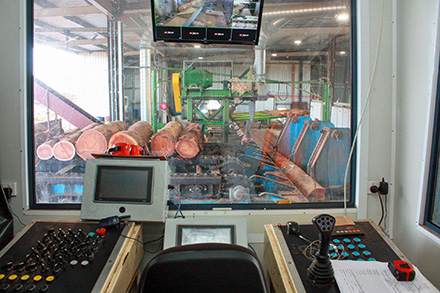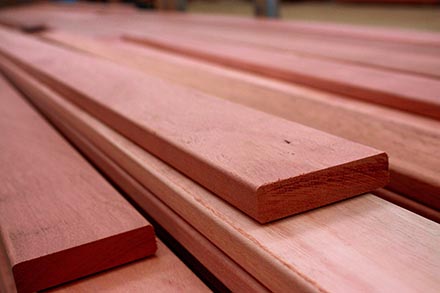After injecting more than $4.5 million in the Redmond Sawmill in Western Australia, managing director Corey Matters has increased his staff numbers from seven to 20. The investment has seen Redmond Sawmill, near Albany, receive a complete upgrade to predominately automated machines, including a large kiln, and has more than doubled their timber processing capacity. Source: Timberbiz
The sawmill was originally established in 1997 by the Gatti family before Mr Matters purchased the business in 2015 and saw great potential for expansion.
“I could see an opportunity within the market and decided to invest in the infrastructure, so we could capitalise on that opportunity and attract skilled labour,” Mr Matters said.
The significant investment has also allowed them access to new markets, by supplying products such as timber battens.
Mr Matters has enlisted the help of industry veteran Rob Hossen as operations manager, who is helping guide the growth of the mill.
“This level of investment is great for the local community,” Mr Hossen said.
“Corey had a vision and he’s bought it to life. The mill is now far more efficient but we’re employing more people.”
The mill processes mainly Jarrah and Karri, sourced from sustainably managed forests around the South West and Great Southern regions.
The timber is processed specifically for the needs of the infrastructure market (wharfs, jetties, rail), structural market (timber battens, fence posts, garden sleepers), flooring, decking and furniture and joinery.
Products are sold both locally, interstate and exported, and sales have doubled since the upgrade despite the fact they are currently operating at 70% capacity.
There is also minimal waste, with solid market demand for by-products such as firewood, sawdust and woodchips.
Mr Matters said even at full operating capacity demand would outstrip the supply, but that was a healthy scenario for the business.
“This is a profitable business and an industry worth investing in, as long as we can secure our resources going forward, then it will continue that way,” he said.
Looking to the future, Mr Matters said there was potential for further expansion in value-adding, which would result in more local jobs.









